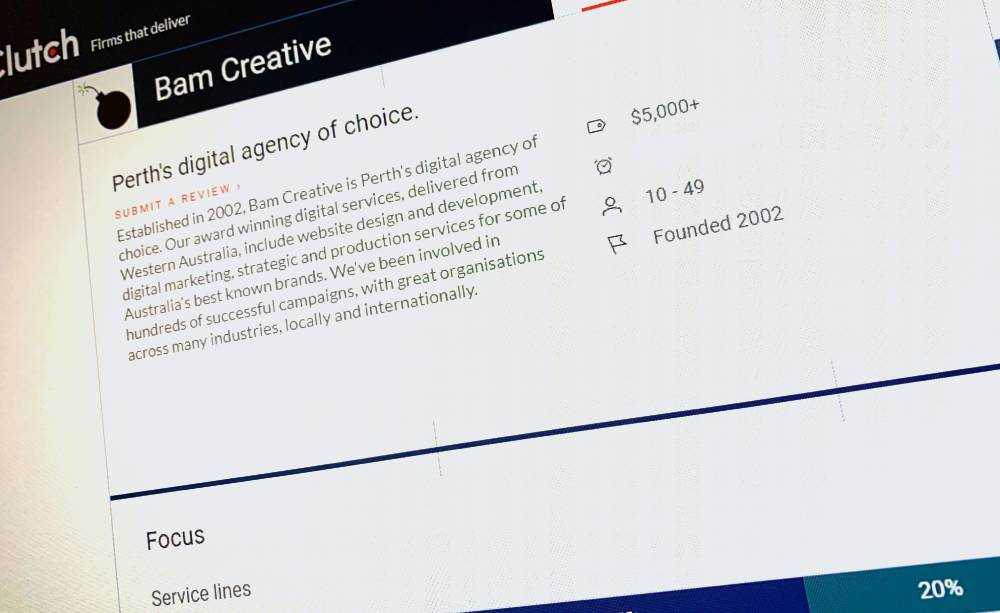How and Why You Should Get Listed on Relevant Web Directories
Updated 6 November 2022 (Published 27 May 2020) by Miles in Digital Marketing
Looking for more customers and better search engine rankings? Yes, of course you are. A considered approach to get listings on relevant web directories may help you achieve just that. This article explains further.

When we talk about SEO, particularly link building, the topic always ends up going to the value of curated web directories, especially those local web directories, or very niche specific ones.
In this article, we will discuss what is a web directory, the benefits of being listed on one, what types you should target submissions to, how to list on them and a few pointers for bad links, and why you don't want to just submit everywhere.
So without further ado, let's get into it!
What is a web directory?
We have all seen web directories, even if you haven't known what to call them exactly. These are similar in a way to telephone directories, yet they normally include further detail, such as physical address, categories, products, contact names and even reviews. They are typically searchable or browse by topic or region.
Some web directories are geographic, or industry specific, and others can be very general. For example, the dLook website is a large web directory for all of Australia. The Find a CPA section of the CPA Australia website is a niche directories of Australian accounting practices.
Benefits of web directories
There are two main benefits of being listed on the right web directories. One is for humans and one for robots. No, not those robots. I'm talking crawlers for search engines like Google.
So, the first benefit is I may be looking for your specific industry on a directory, and find you. Then I get in touch. That's lead generation, also known as marketing to humans.
Obviously, not all humans that see your listing will get in touch, however if you attract a few per year, that could easily be worth the effort of being on that directory. Let's say the CPA example above. If I were a CPA, I would make sure to be in that list, as it could help prospective customers find me.
So the second benefits is for crawlers, or more specifically, for search engine optimisation. If you get the right types of links from the right directories, then you can get some SEO benefits from these. When I say right links, I mean the value of the link can be affected by many factors, such as how many outbound links that originating page or site has, if the link is dofollow or nofollow, does it have anchor text and more.
They aren't everything, however. Backlinks such as the ones from quality web directories, are just one of many search engine optimisation factors that can improve your website ranking.
What types of web directories should I consider listing on?
So when I say 'right directories', there's a number of things you should consider. Over the last decade, directory link building has been abused by many "SEO experts" in order to get quick links for their clients.
These links are typically low quality and the result is these websites are treated as if they are spamming the search engine results. As a result of this dodgy behaviour, Google took a dim view of low quality directories, and has removed many from their search engine results.
So, listing on some directories can be very beneficial for you, however these directories need to be niche or location specific. When I say niche or topic specific, say for instance that you are an electrician based in Joondalup.
It could be beneficial to your business to have a listing on a electrician or building contractor directory, if they list WA businesses. It would also make sense to be in a Perth business directory, or a Western Australian directory even.
So, what types of directories should you avoid? Any directory that looks very spammy, or is not relevant to your business. If you look at the directory, and it links to advertisements for certain medicinal drugs (we all get those spam emails), or gambling, adult, drug sites, then I would recommend steering away from them.
So let's talk relevance. Say you're a law firm in Fremantle. It's pointless getting listed on a list of Manufacturing suppliers for the UK. Sure, it could be a link to your website, but the fact it is totally irrelevant won't escape the notice of Google. They can be pretty clever working this out.
Finding appropriate web directories
A good way to start finding these web directories, is to search for ones that you are already listed on. You can do this by going to google, and searching your full business name. Sometimes it is even worth searching for your address as well. We do this regularly, and find old listings with out of date information every few months.
Another method you can use is by searching for a competitive business, to see where they are listed. Try also to use "[industry] directory" or "[industry] [location] directory". For example, I found the CPA directory I mentioned earlier, by searching for "accountants Australia directory". There are plenty of niche and geographic directories across Australia.
Some of these directories will be free, and then others will be paid only. You want to do your due diligence when link building before deciding to pay an annual or monthly fee. For example, if they are a pet shop directory, can the directory be found if you search "pet shop Perth"? If they can't manage their own SEO, then you won't get much benefit from them. Also be careful about claims of traffic. It is easy to make a small audience sound massive by using terms like hits or annual visitors.
If you are unsure, perhaps find a few of their paid listing customers, and try contacting them for feedback, or search for "[directory name] reviews" on Google as well.
How to list on these directories
The first step in creating listings, is to see if you already have a listing on a specific directory. The easiest way to do that is search for your business name on the directory in question. If you do appear, many of these directories have a feature called 'Claim this listing', which means they have collected some basic information about your business from somewhere, and they add your business as a listing.
These basic web directory listings include your basic contact information such as business name, address and telephone number. If this is the case for you, you need to click the 'claim this listing' and follow the steps.
If you can't find your business on a directory, then there is normally some 'Add a listing' form. Many of these will have a free option and a paid option. It is always worth listing as free to begin with, and then weigh up the benefits and costs of getting a paid listing.
I recommend you add all the details you are being asked for, into a text document, so you can cut and paste into other web directories as well. This saves significant time, and also ensures that you are consistent. Being consistent with your branding is paramount, the last thing you want is be listed as Miles' Pizza on one directory, and Miles' Pizzeria on another. You need to always refer to your pizza business in the right context.
Many local directories require that your business has a physical address, in order to be listed. So if you are an online business, you may need to have a postal address or serviced office address. Be mindful listing your home address may mean that it is published on the directory too. Just like with your business name, enter all of your contact details in the exact same way for every web directory you get listed on.
Telephone numbers should always include your area code and possibly country code, depending on the directory geography. If the directory is purely Perth based, it is unlikely you would need a country code for example. You may be asked to choose one or more categories to describe your business. You may not find a perfect category, so in that case you should choose the closest fit.
A number of the bigger web directories will now ask you to prove you are the business owner. This may mean uploading a letterhead or an official document, or waiting for them to mail out a postcard with a special code, or an automated voice call or text message with a code.

Maintaining your directory listing
Once you have listed your business on a number of directories, keep a track of your progress and the list of places by making and updating a central spreadsheet. You want to regularly check and ensure you keep your local web directory listings consistent and up to date.
Remember, if you ever move business location or change phone numbers for example, you will need to go through and update all of these listings.
Disavowing bad backlinks
Now if you have listings on spammy looking directories, you can possibly fix this by creating a disavow. Disavowing is a fancy way of saying telling Google "don't index them" or "don't count them towards my links".
Google has a special disavow tool that allows you to put the originating page URL in, for them to ignore it. Build up a list of these pages first, and put them in a spreadsheet for Google to consume.
In Summary
Done correctly, building up citations from local Australian web directories can be good for both your search engine optimisation value as well as attract new prospects to your business. Just be sure to not go all spammy, and create listings on unrelated or insignificant websites.
A handful of quality backlinks from relevant web directories is far better than thousands of spammy links.


